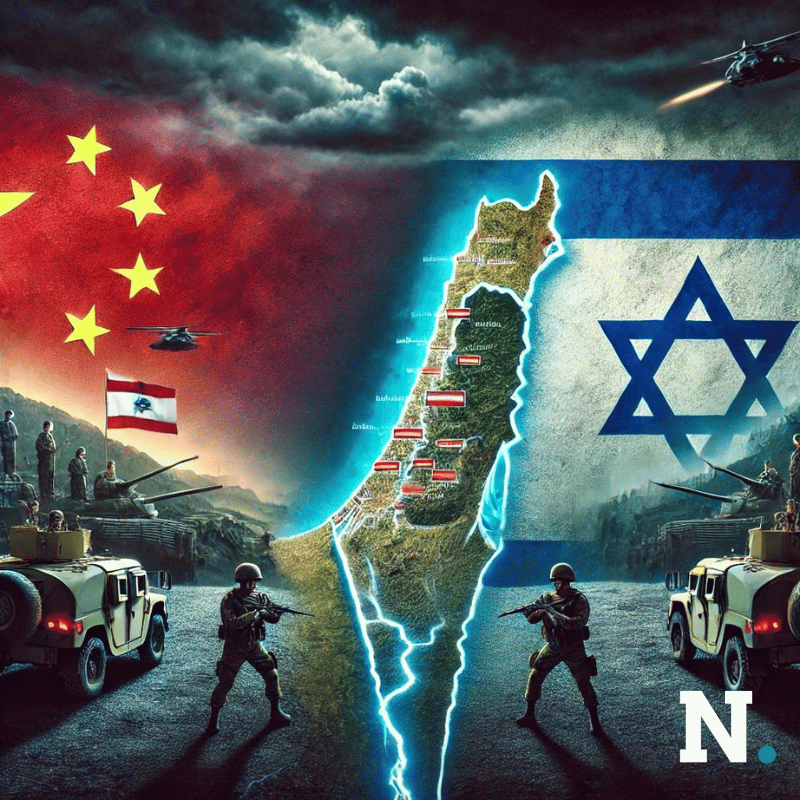Tensions in the Middle East are at a boiling point, with conflicts escalating between Israel and Hezbollah, the militant group backed by Iran. In response to the killing of Hezbollah’s long-time leader, Hassan Nasrallah, China has issued a stark warning to Israel, urging immediate de-escalation to prevent a full-scale war. As violence continues to spread across the region, countries around the world are voicing their concerns and advising their citizens to avoid travel to affected areas, including Lebanon.
China’s Call for De-escalation
The Chinese government, through its foreign ministry, has expressed deep concern about the escalating violence in the Middle East. In a statement released on Sunday, China emphasized the importance of respecting Lebanon’s sovereignty and security. The ministry stated, “China opposes actions that infringe upon Lebanon’s sovereignty and security, opposes and condemns all actions that harm innocent civilians, and opposes any moves that intensify conflicts and lead to an escalation of the regional situation.”
China has urged all parties involved, particularly Israel, to take immediate action to de-escalate tensions. The goal is to prevent the conflict from spreading further, which could lead to even greater instability in the region. The Chinese government is especially worried about the ongoing violence in Lebanon following the death of Hassan Nasrallah, who was killed during an Israeli airstrike on Friday. The bombing leveled multiple buildings in the Lebanese capital of Beirut, bringing the two sides closer to a full-scale war.
This is not the first time China has called for restraint in the Middle East. The country has consistently advocated for peaceful resolutions to conflicts and has often opposed military interventions that lead to the loss of civilian lives. China’s warning to Israel is part of a broader effort to maintain peace and stability in a region that is already fragile due to various political and religious tensions.
Growing Security Concerns in Lebanon
As the conflict intensifies, China has issued a security alert advising its citizens to avoid travel to Lebanon. The Chinese embassy in Lebanon released a statement warning that the situation along the Lebanon-Israel border is becoming increasingly dangerous due to continued airstrikes and heavy bombardment. The embassy advised Chinese nationals already in Lebanon to evacuate or move to safer areas immediately.
“We advise all Chinese citizens to pay close attention to the developments and refrain from travelling to Lebanon at this time,” the embassy’s statement read. “Those currently in the country are urged to evacuate or move to relatively safe areas as soon as possible.”
The warning from the Chinese embassy comes as more than 50,000 people have fled Lebanon into neighboring Syria to escape Israeli airstrikes, according to a report from the United Nations. The violence has created a humanitarian crisis, with thousands of families seeking refuge in safer areas, leaving behind their homes and livelihoods.
China’s security concerns mirror those of other countries, including the United States, which has also raised its travel advisory for Lebanon. The U.S. Department of State has urged its citizens to avoid traveling to Lebanon due to the heightened risk of crime, terrorism, and civil unrest. The travel advisory also noted that the Lebanese government may not be able to guarantee the safety of foreign nationals in the country.
Escalating Conflict and Global Reactions
The killing of Hassan Nasrallah has been a significant turning point in the ongoing conflict between Israel and Hezbollah. Israeli Prime Minister Benjamin Netanyahu defended the decision to eliminate Nasrallah, stating that it was a necessary move to shift the balance of power in the region. According to Netanyahu, Nasrallah posed a direct threat to Israel’s security, and his death was essential for the country’s broader military strategy, particularly in dealing with Iran-backed groups like Hezbollah.
However, Nasrallah’s death has not gone unnoticed by Iran, Hezbollah’s primary backer. Iran’s supreme leader, Ayatollah Ali Khamenei, vowed revenge for Nasrallah’s killing and declared five days of public mourning. Tehran has called for an emergency meeting of the United Nations Security Council to discuss the situation, urging immediate action to prevent the region from being dragged into an all-out war.
In the days following Nasrallah’s death, Israeli airstrikes have continued, with targets including Hezbollah’s missile launchers aimed at Israel. According to Israeli military reports, over 1,000 Hezbollah targets have been struck, with a significant portion of the group’s missile stockpile destroyed. Israel’s military also claims to have killed eight out of Hezbollah’s nine top military commanders this year, further weakening the group’s leadership.
As tensions rise, the United Nations has expressed grave concern about the potential repercussions of the ongoing conflict. UN Secretary-General Antonio Guterres issued a statement on Saturday, urging both sides to step back from the brink of war. Guterres called for an immediate ceasefire and emphasized the need for all parties to respect the terms of a Security Council resolution that had previously ended the 2006 war between Israel and Hezbollah.
The violence is not limited to Lebanon, as there are increasing fears that the conflict could expand to involve other countries, particularly Iran and the United States. U.S. President Joe Biden has instructed the Pentagon to assess the country’s military presence in the Middle East and take measures to minimize the risk of a wider regional conflict. Meanwhile, Iran’s leaders are calling for international action to hold Israel accountable for Nasrallah’s death.
The situation in the Middle East remains tense, with China’s warnings adding to the growing international concern. As violence between Israel and Hezbollah continues to escalate, the risk of further destabilization in the region looms large. China’s call for de-escalation underscores the need for immediate action to prevent a full-scale war that could have devastating consequences for the entire region. With global powers now weighing in, the world watches closely to see if a peaceful resolution can be achieved before the conflict spirals out of control.





